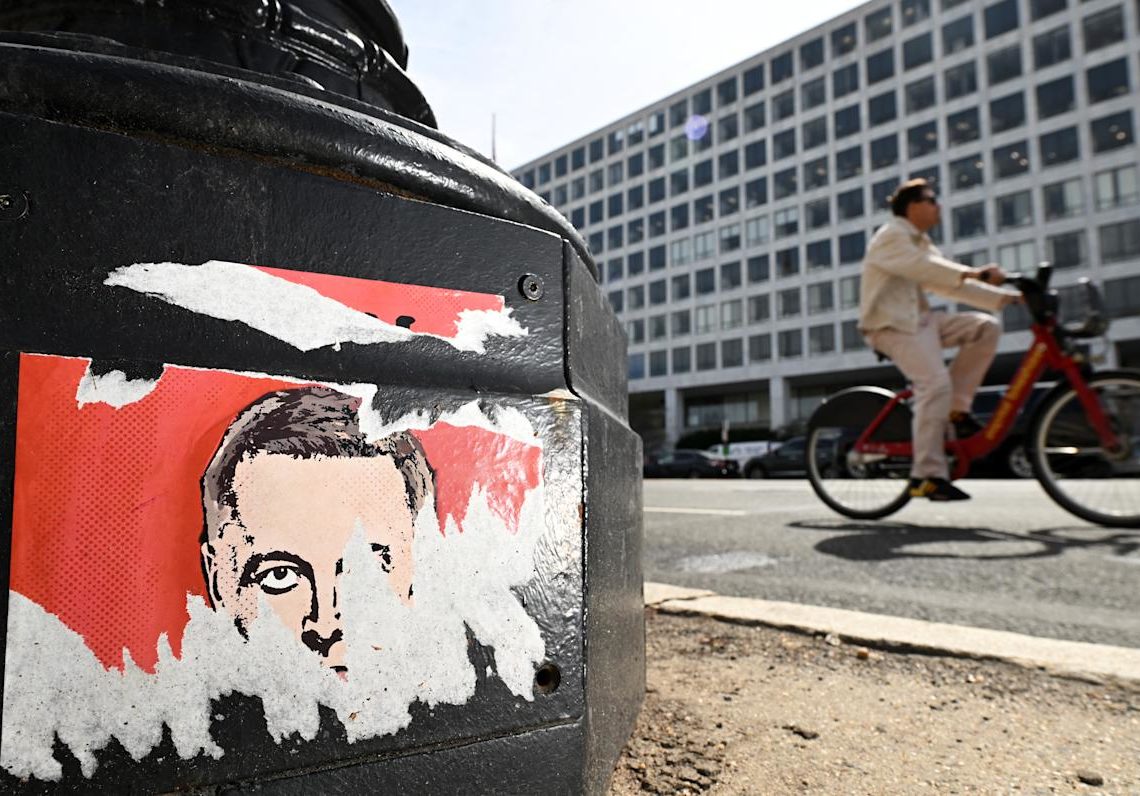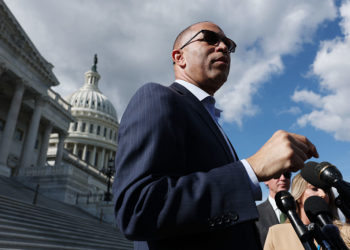The U.S. DOGE Service is putting new curbs on billions of dollars in federal health-care grants, requiring government officials to manually review and approve previously routine payments – and paralyzing grant awards to tens of thousands of organizations, according to 12 people familiar with the new arrangements.
The effort, which DOGE has dubbed “Defend the Spend,” has left thousands of payments backed up, including funding for doctors’ and nurses’ salaries at federal health centers for the poor. Some grantees are waiting on payments they expected last week.
The Trump administration is pushing to cut federal spending and crack down on grants that political officials say conflict with White House priorities.
DOGE, which stands for the Department of Government Efficiency, said the new initiative, which is being rolled out across parts of the Department of Health and Human Services, will force grantees and officials to justify spending and create transparency.
“Thanks to the great work by @HHSGov, for the first time ever, the American people will be able to see line-by-line payment descriptions & justifications – coming soon to the DOGE website,” the group posted on X last Saturday.
Typically, an organization that has been awarded a grant does not receive the funding up front. The money is held in a secure account managed by the government, and an organization will request “drawdowns” – tranches of money periodically throughout the year – to cover expenses such as salaries or research costs.
Under Defend the Spend, organizations must now include a justification for each transaction. Federal officials then review the justification before deciding whether to approve the payment.
The process has been abruptly instituted at the National Institutes for Health, the Administration for Children and Families, and other parts of HHS, with inconsistent instructions on how to proceed, said the people familiar with the arrangements, who, like others, spoke on the condition of anonymity because of fear of reprisal. They also described immediate backlogs in processing payments.
HHS said in a statement that the DOGE effort would not threaten “support for critical programs” and was intended to root out fraud and abuse. “The era of rubber stamping is over,” the HHS statement said.
Current and former federal officials said the process would create bottlenecks.
“Instead of cutting red tape, they are strangling grantees with it,” said Robert Gordon, who served as the HHS assistant secretary of financial resources during the Biden administration.
Some officials have been told that only Trump political appointees can sign requests to disburse funds, even if a career official has already approved it, adding an additional layer of review. The justification for each payment also must include an explanation of how the money will be used to advance Trump administration priorities, according to two employees in separate agencies who received high-level briefings on the process.
Federal officials also have been instructed to use a website run by DOGE to approve grant payments, according to an email sent by [email protected] and obtained by The Washington Post.
NIH officials on Thursday were still determining who would approve grant payments at their agency and did not expect to finalize the process until next week, two NIH officials said.
Some outside organizations have been told their delayed payments are “in transit,” but several federal officials said that is not true. It is unclear whether all the federal health-care grants will be approved and when.
“All funding is on hold,” an NIH official told colleagues at a meeting on Thursday, according to audio obtained by The Post. “The bottom line is no one is getting any money right now. But they don’t know they’re not getting any money because it just says that it’s ‘in transit.’”
In the first months of the Trump administration, government officials have taken multiple steps to delay or halt federal grants. Those include slow-walking billions of dollars in research grants issued by agencies such as the NIH, and freezing or terminating grants to higher-education institutions, on the grounds that the universities did too little to combat antisemitism on campus, did too much to support transgender athletes or for other, indeterminate reasons.
DOGE engineers also recently inserted themselves into the government’s long-established process to alert the public about potential federal grants and allow organizations to apply for funds. The group – which is backed by billionaire Elon Musk and stocked with young engineers and Musk allies – has said it is focused on cutting wasteful spending and making the government more efficient.
But the new initiative is creating holdups, staffers who award grants at the health agencies said in interviews. They described a hurried, uncertain process to roll out Defend the Spend, which involves fields added to Payment Management Services, a centralized system that processed nearly 500,000 transactions and more than $850 billion in payments last year. A DOGE engineer was given access to the system on Jan. 22 and was made an administrator, according to a Trump administration court filing last month.
At a meeting of grants management staff Wednesday, NIH officials explained that DOGE’s process was instituted the previous Friday and that they would halt all payments until they had been through an extra layer of review, according to an NIH staffer.
The freeze had been put in place without any sort of formal announcement, leaving thousands of payment requests backed up and confusing organizations waiting for federal funds.
Catholic Charities of Fort Worth last week referred to the new requirements in a court filing that is part of its lawsuit against the Trump administration, saying it was “concerned” by the requests for additional information before drawing down funds. Catholic Charities of Fort Worth did not immediately respond to requests for comment.
Another grantee said they had requested funds in the last week but hadn’t received them. An unsigned email told them to reach out to the agency.
“The payments are going through extra review,” the email said.
Until this month, grantees had to provide progress reports and quarterly reports for federal review, but government staffers did not examine every single “drawdown” of funds requested, said one HHS employee.
Thousands of such “drawdowns” take place every day, the employee said. The DOGE system has imposed an extreme workload on government staff, the employee said.
Among those immediately suffering consequences are federal health centers, which provide services for low-income people and those who lack insurance, the employee said. Those centers rely on regular drawdowns for their operational expenses, such as doctors’ and nurses’ salaries and basic medical supplies.
If the funding delay continues much longer, the situation will grow dire for such centers, imperiling their ability to assist the poor, the employee said.
Related Content
Ja Morant dares the NBA to punish him, knowing it won’t pull the trigger
Scientists are ‘X-raying’ the Amazon, unlocking a lost human history
The Smithsonian could be the beginning of Trump’s plan to edit history. Or the end.
The post DOGE begins to freeze health-care payments for extra review appeared first on Washington Post.




